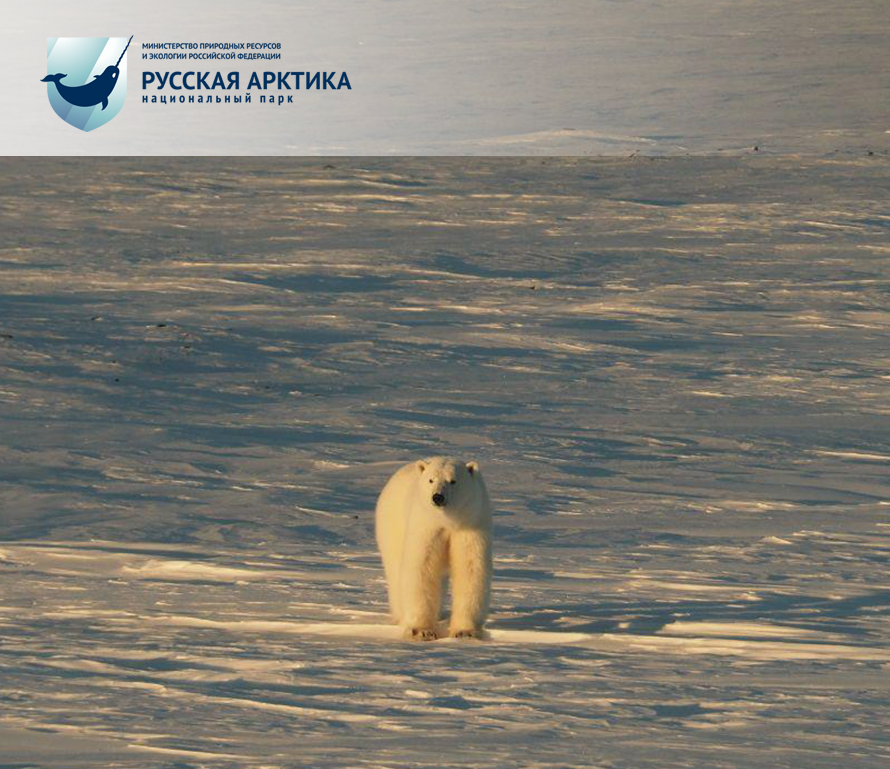Roscongress Foundation and Russian Arctic National Park launch joint project

The ‘Arctic: Territory of Dialogue’ International Arctic Forum and Russian Arctic National Park have started work on a large-scale educational project. The project will include the development of a new education content with exclusive photo and video materials, online expeditions and a remote arctic volunteer-led school. The project is due to launch on social media of International Arctic Forum in May.
Kicking off the project, Russian Arctic polar explorers shared exclusive never-before-seen photographs with the Roscongress Foundation of the Omega polar station on Alexandra Land. The first footage of polar bears at the national park in 2020 is very valuable as the spring observations could give researchers more information about the life of the animals. It is at this time of year that sows and their cubs leave their den.
“We wanted to bring the Arctic a bit closer to everyone, and make it feel a bit more real. There’s already a virtual Arctic Cinema up and running on the International Arctic Forum platform where we soon hope to broadcast pre-recorded films from Russian Arctic National Park. Looking ahead, there’s lots of inspiring ideas and projects, and we look forward to long-term collaboration”, said Oksana Poletimova, Director of the ‘Arctic: Territory of Dialogue’ International Arctic Forum.
“Given the distinctive remoteness of the Park from the mainland, most Russians have never been to the Franz Josef Land or Novaya Zemlya archipelagos. Thanks to the project, everyone will now be able to see what the Arctic is like for themselves,” said Alexander Kirilov, Director of Russian Arctic National Park. “With the support of the Roscongress Foundation, this dream will become a reality. Without leaving their home, anyone will be able to experience the Arctic’s northern hemisphere.”
For reference purposes: Russian Arctic National Park was founded in 2009. It is now one of the largest specially protected natural areas in the world, and the largest in the Russian Federation. The park is comprised of two parts: the northern and the southern clusters. The northern cluster of Russian Arctic National Park is located on the Franz Josef Land archipelago. The cluster is situated on the north-eastern part of the Barents Sea and is comprised of 192 islands. The largest islands of the archipelago are Prince George Land, Wilczek Land, Graham Bell Island, Hall Island and Alexandra Land. In spite of the harsh arctic climate (arctic wilderness), Franz Josef Land is noted for its rich flora and fauna, boasting 12 species of mammal and 51 species of bird. This list includes 6 species of animal recorded in the Red Book of the Russian Federation, along with the international Red Book: polar bears, Atlantic walruses, Bowhead whales, narwhals, ivory gulls and brants.

